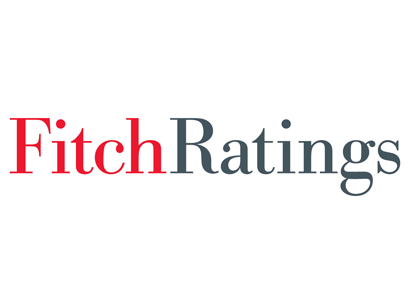Azerbaijan, Baku, April 25 / Trend /
Fitch Ratings has assigned Kazakhstan Joint Stock Company National Managing Holding KazAgro (KazAgro) a Long-term foreign currency rating of 'BBB', a Long-term local currency rating of 'BBB+' and a Short-term foreign currency rating of 'F3'. The Outlooks for the Long-term ratings are Stable, Fitch Ratings reported on Thursday.
Fitch also has assigned the KazAgro's upcoming senior unsecured Eurobond issue an expected Long-term foreign currency rating of 'BBB(EXP)'.
The ratings reflect KazAgro's state ownership, its strategic importance for the national agricultural sector and hence potential government support. Fitch uses its public-sector entities rating criteria and applies a top-down approach in its analysis of KazAgro.
KazAgro - a JSC with 100% ownership by the national government - was established in 2007 in accordance with the decree of the President of the Republic of Kazakhstan. KazAgro acts as the government's agent in implementation of a state policy in the area of agriculture. The sector is of high importance for the nation in the terms of production, employment and social issues.
KazAgro is one of two national management holdings of Kazakhstan. It implements state policies in the agriculture sector via a network of seven subsidiaries (KazAgro's group). The group's activities range from issuance of loans, leases and guarantees to agriculture players, market interventions and insurance. Ensuring food security and stable domestic food prices are its major objectives.
Fitch believes that KazAgro's strategic importance for the socially sensitive sector implies that direct or indirect support would be highly likely if needed. Moreover default on its obligations would tarnish Kazakhstan's international image. However the absence of a formal state guarantee may give rise to concerns on the timeliness of the support, especially in the light of expected Eurobond issue.
KazAgro has a low level of debt at 16% of total assets at the holding level, and 25% at the group level. However it is set to grow as KazAgro intends to issue a Eurobond with a nominal value of at least USD500m with up to 10 years maturity in May 2013. The bond will be denominated in foreign currency and will not be guaranteed by the state. As a result overall debt burden will increase, and foreign exchange exposure arises. The resources will be used for expanding the operating activity of KazAgro, including on-lending to subsidiaries, and should improve profitability of KazAgro's subsidiaries companies due to the decline of funding costs.
The company currently relies heavily on capital and equity injections from the state, including short-term low-cost subsidised budget loans. In 2009 KazAgro received a KZT120bn subsidised loan from the National Fund. Using the IFRS approach, KazAgro recognized KZT52.3bn of nominal value as debt liabilities and the difference between fair value of debt instrument and its nominal value was recorded in additional paid-in capital.
Fitch expects that KazAgro will continue to benefit from regular equity injections and access to subsidised government loans in the future. However Fitch notes that a material increase of market borrowings leading to the substitution of government funding could envisage weakening state support.
Fitch notes that future positive rating action would be triggered by evidence of more formalised state support of KazAgro's liabilities, including the explicit government guarantee on its financial debt. An upgrade of the Republic of Kazakhstan could also trigger a positive rating action. Conversely, weakening of state support reflected in changes in legal status or factors, which would lead to dilution of control or likelihood of support by the sovereign, including if over 50% of total funding were raised from the market, would result in a downgrade as would any negative rating action on the Republic of Kazakhstan.






